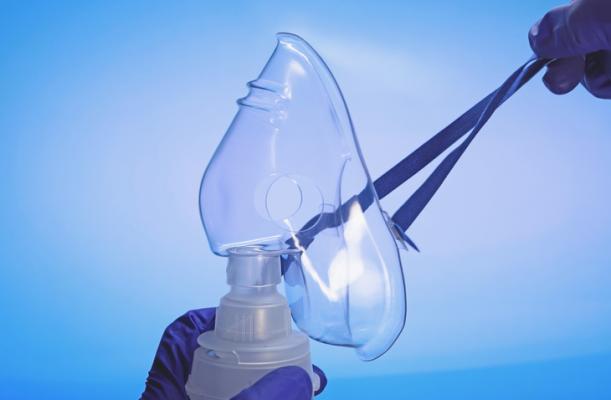
Getty Images
May 10, 2023 — A small randomized trial in patients with post-COVID syndromehas found that hyperbaric oxygen therapy promotes restoration of the heart’s ability to contract properly. The research is presented at EACVI 2023, a scientific congress of the European Society of Cardiology (ESC).1
“The study suggests that hyperbaric oxygen therapy can be beneficial in patients with long COVID,” said study author Professor Marina Leitman of the Sackler School of Medicine, Tel Aviv University and Shamir Medical Centre, Be'er Ya'akov, Israel. “We used a sensitive measure of cardiac function which is not routinely performed in all centers. More studies are needed to determine which patients will benefit the most, but it may be that all long COVID patients should have an assessment of global longitudinal strain and be offered hyperbaric oxygen therapy if heart function is reduced.”
Most COVID-19 sufferers fully recover, but after the initial illness approximately 10–20% of patients develop long COVID, also called post-COVID condition or syndrome.2 Symptoms include shortness of breath, fatigue, cough, chest pain, rapid or irregular heartbeats, body aches, rashes, loss of taste or smell, nausea, vomiting, diarrhea, headache, dizziness, insomnia, brain fog, depression and anxiety. Patients with post-COVID syndrome may also develop cardiac dysfunction and are at increased risk of a range of cardiovascular disorders.3
This randomized controlled double-blind trial evaluated the effect of hyperbaric oxygen therapy (HBOT) on the cardiac function of long COVID patients. HBOT involves inhalation of 100% pure oxygen at high pressure to increase delivery to the body’s tissues, which is particularly beneficial for tissues that are starved of oxygen due to injury or inflammation. HBOT is an established treatment for non-healing wounds, decompression sickness in divers, carbon monoxide poisoning, radiation injury and certain types of infections.
The study enrolled 60 post-COVID syndrome patients with ongoing symptoms for at least three months after having mild to moderate symptomatic COVID-19confirmed by a PCR test. Both hospitalized and non-hospitalized patients were included. Severe COVID cases were excluded. Patients were randomized to HBOT or a sham procedure in a 1:1 ratio. Each patient had five sessions per week over eight weeks, for a total of 40 sessions. The HBOT group received 100% oxygen through a mask at a pressure of 2 atmospheres for 90 minutes, with 5-minute air breaks every 20 minutes. The sham group breathed 21% oxygen by mask at 1 atmosphere for 90 minutes. All participants underwent echocardiography at baseline (before the first session) and 1 to 3 weeks after the last session.
Echocardiography was used to assess left ventricular global longitudinal strain (GLS), which is a measure of the heart’s ability to contract and relax lengthwise. It indicates how well the heart is functioning and can help detect early signs of heart disease. A healthy heart will have a GLS value of around -20% which means that the heart muscle is able to properly contract and relax in the longitudinal direction. Reduced GLS is an early marker that the heart is not able to contract and relax effectively.
At baseline, nearly half of study participants (29 out of 60; 48%) had reduced GLS. Of those, 13 (43%) and 16 (53%) were in the sham and HBOT groups, respectively. The average GLS at baseline across all participants was -17.8%. In the HBOT group, GLS significantly increased from -17.8% at baseline to -20.2% after the intervention (p=0.0001). In the sham group, GLS was -17.8% at baseline and -19.1% after the sessions, with no statistically significant difference between the two measurements.
Professor Leitman said: “It was notable that almost half of long COVID patients had impaired cardiac function at baseline according to GLS despite all participants having a normal ejection fraction, which is the standard method for measuring the heart’s ability to contract. This means that ejection fraction is not sensitive enough to identify long COVID patients with reduced heart function.”
She concluded: “The findings suggest that HBOT promotes recovery of cardiac function in patients with post-COVID syndrome. More research is needed to collect long-term results and determine the optimal number of sessions for maximum therapeutic effect.”
For more information: www.escardio.org
References
1The abstract ‘The effect of hyperbaric oxygen therapy on myocardial function in post-COVID syndrome patients: a randomized controlled trial’ will be presented during the session ‘COVID’ which takes place on 10 May at 11:30 CEST at Moderated ePosters 1.
2World Health Organization: Coronavirus disease (COVID-19): Post COVID-19 condition.
3Xie Y, Xu E, Bowe B, Al-Aly Z. Long-term cardiovascular outcomes of COVID-19. Nat Med. 2022;28:583–590.
Related Long-COVID Coverage:
ACC23 Study Finds Long COVID More Than Doubles Risk of Developing New Cardiac Symptoms
ACC Scientific Session 2023 to Feature Smidt Heart Institute Experts
MRI Sheds Light on COVID Vaccine-Associated Heart Muscle Injury
What We Know About Cardiac Long-COVID Two Years Into the Pandemic
VIDEO: Long-term Cardiac Impacts of COVID-19 Two Years Into The Pandemic — Interview with Aaron Baggish, M.D.
VIDEO: Long-COVID Presentations in Cardiology at Beaumont Hospital — Interview with Justin Trivax, M.D.
VIDEO: Cardiac Presentations in COVID Long-haulers at Cedars-Sinai Hospital — Interview with Siddharth Singh, M.D.
Find more COVID news and videos
Related COVID Content:
COVID-19 Fallout May Lead to More Cancer Deaths
Kawasaki-like Inflammatory Disease Affects Children With COVID-19
FDA Adds Myocarditis Warning to COVID mRNA Vaccine Clinician Fact Sheets
CMS Now Requires COVID-19 Vaccinations for Healthcare Workers by January 4
Cardiac MRI of Myocarditis After COVID-19 Vaccination in Adolescents
Small Number of Patients Have Myocarditis-like Illness After COVID-19 Vaccination
Overview of Myocarditis Cases Caused by the COVID-19 Vaccine
Case Study Describes One of the First U.S. Cases of MIS-C
NIH-funded Project Wants to Identify Children at Risk for MIS-C From COVID-19


 January 05, 2026
January 05, 2026 









